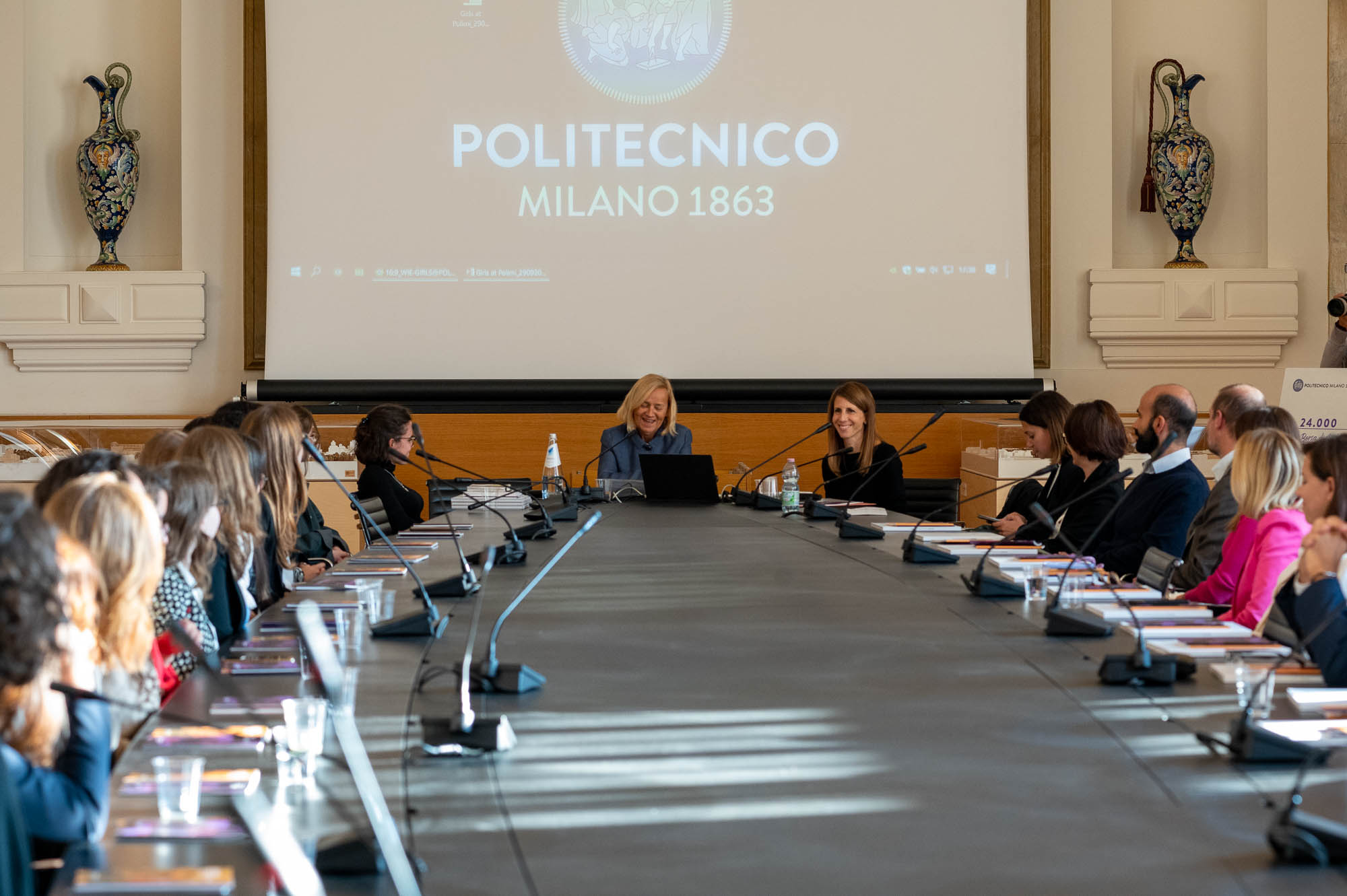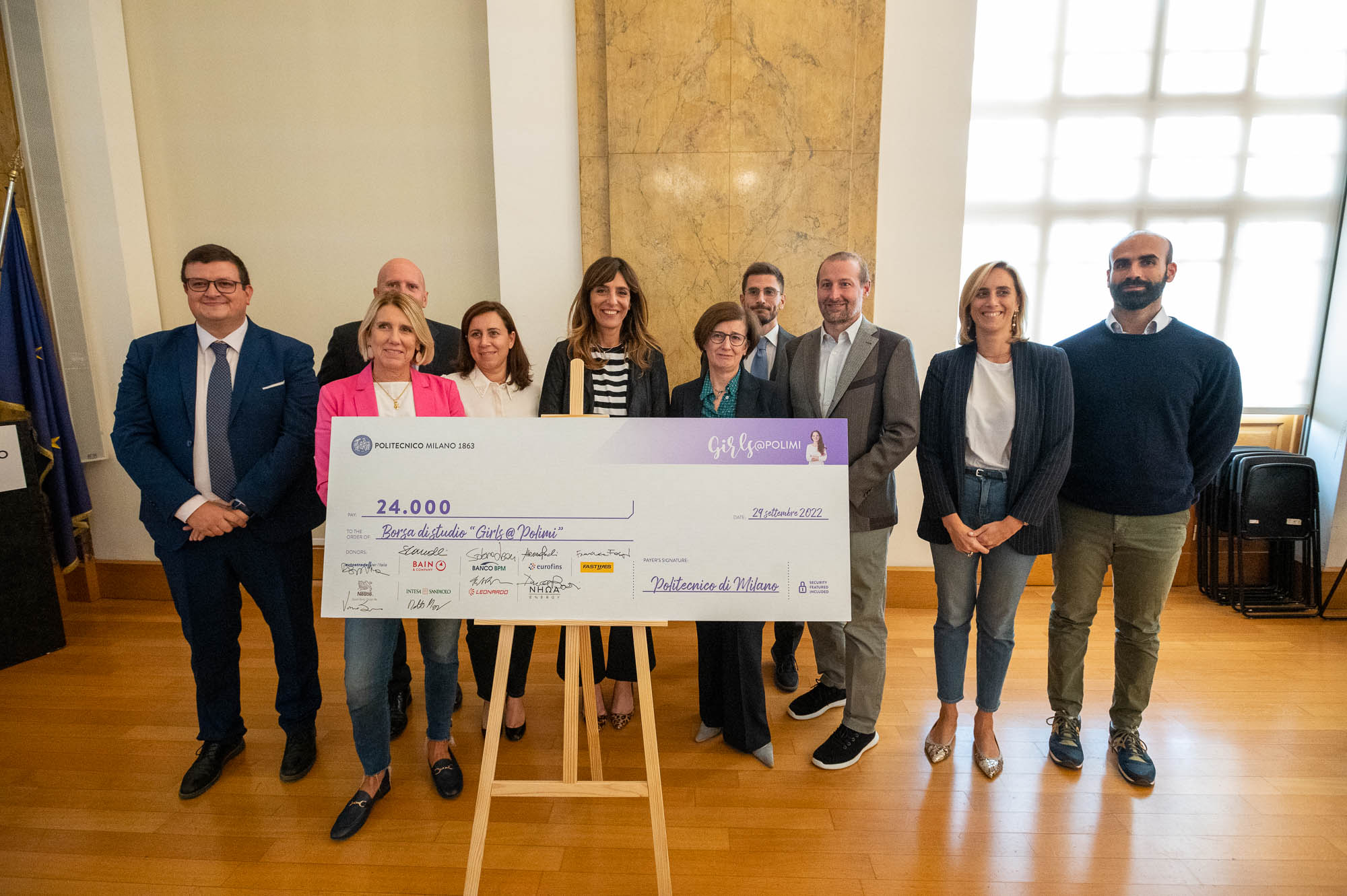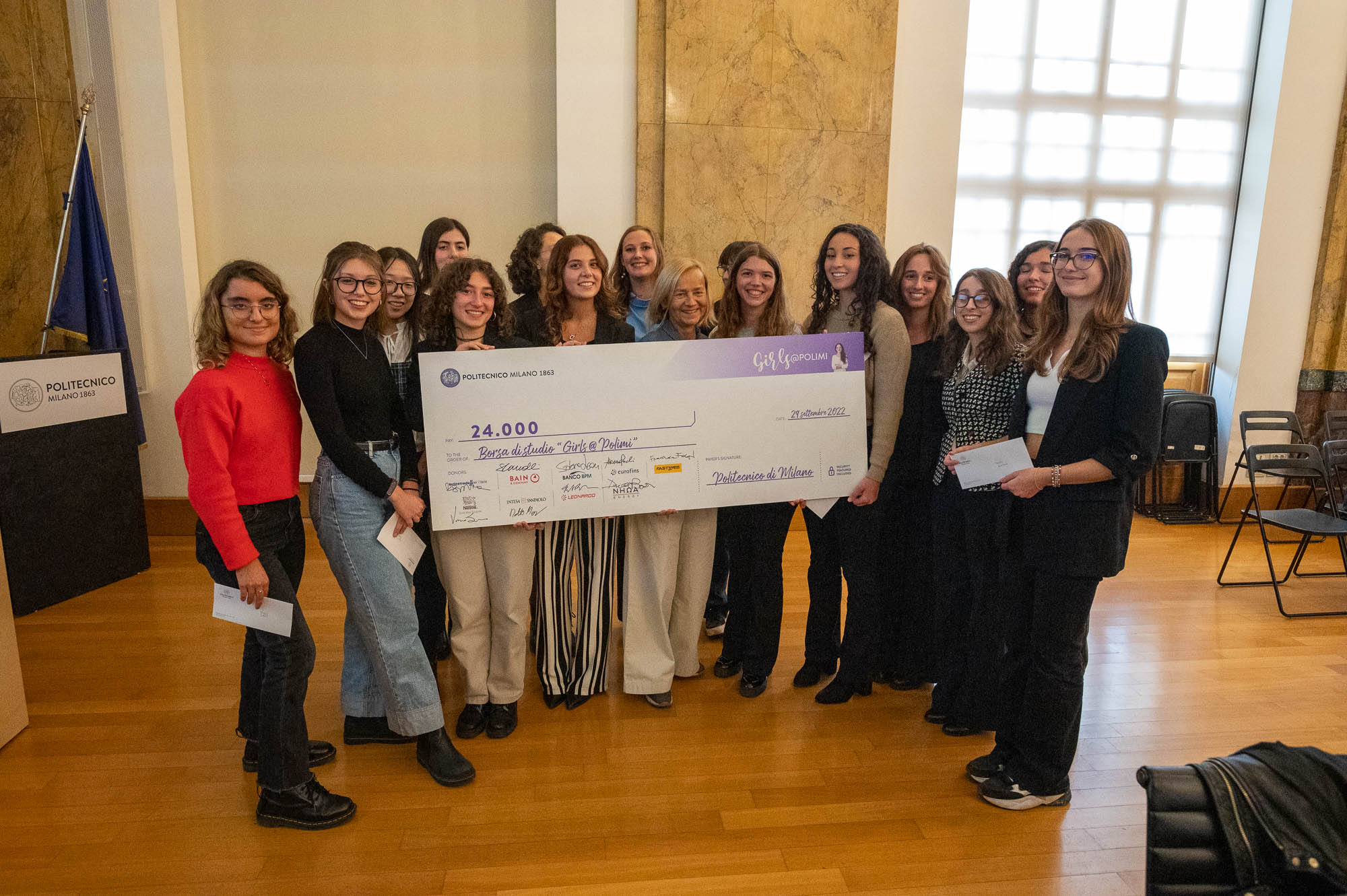Francesca P. moved to Milan from Genoa and studies Engineering of Computing Systems, as do her classmates Beatrice and Anna, from Modena, and Raffaella, from Palmanova. Giulia C., who studies Automation Engineering, and Giulia D. and Chiara, , who study Mechanical Engineering, come from Rome., vengono da Roma. Susan, an automation engineer, comes from the Province of Mantua. Sara e Lucrezia, both from the Province of Bergamo, have chosen Aerospace Engineering, as has Francesca S., who is from Bologna. Virginia, who is from Vimercate, is also studying Automation Engineering. Ludovica, from Lecce, has enrolled on the Mechanical Engineering programme. Susan, from Bologna, is studying Electronic Engineering and Federica, from Novara, Electrical Engineering.
These are the 15 female students who have been awarded scholarships this year as part of Girls@Polimithe Politecnico di Milano project that has been created to support girls who decide to pursue studies in STEM subjects (Science, Technology, Engineering and Mathematics). They stood out among almost 200 applicants: female secondary school students who have decided to enrol on engineering programmes with low levels of female representation. The winners will each receive a scholarship worth €8,000 per year. The 2022-2023 edition of Girls@Polimi has been ahahafhgbfghfdjgfjgfjgjd finanziata da 9 aziende companies (the Autostrade per l’Italia Group, Bain & Company Italy, Banco BPM, Eurofins Foundation, Fastweb, Intesa Sanpaolo, Leonardo, the Nestlé Group in Italy and NHOA) and by donations from Politecnico di Milan Alumni.
“Unfortunately, , only a few girls choose to embark on studies in the field of technology, and fewer still decide to pursue a career in technical industries,” remarks Donatella Sciuto, Vice Rector at the Politecnico di MilanoTechnical professions such as engineering are considered to be a natural habitat for men and a conquest for women, argues Sciuto in the book Alumnae – Ingegnere e TecnologieAlumnae – Ingegnere e Tecnologie (“Alumnae - Engineers and Technologies”). Often, embarking on an engineering career requires girls to be extra motivated due to assumed prejudices and models imposed by society. Only 1 student in 5 at the Politecnico di Milano is a woman; this percentage falls drastically in Aerospace, Automation, Electrical, Electronic, Computing Systems, Mechanical and Industrial Production Engineering courses in particular.




“I found myself attending the Electronic Engineering course many years ago,” continues Sciuto, “when the number of girls was much lower that it is today. And I have never regretted it. I am proud of having learnt that engineering is a way of thinking about not only technical problems, but everyday problems of all kinds: how to analyse them in the right way, without ever beginning to panic. I think it is important to encourage girls to follow their passion and, if they are passionate about technology, to motivate them to go in that direction.”
Girls@Polimi is also a message to companiesa way to promote the need for cultural change. “We at the Politecnico are in contact with many businesses. The most innovative of those ask for the opportunity to employ women: they realise that having mixed working groups that welcome diversity improves the work itself, bringing creativity and innovation in particular, because different minds thinking together generally bring non-standard, non-conformist solutions, which are different to those that have come before.”
The 15 girls have clear ideas: they have chosen these STEM subjects because of their personal interests and because, in a pragmatic sense, they offer them the greatest chance of choosing a rewarding profession. And they have chosen Milan for the atmosphere here: “I decided to move to the Politecnico because it is an international school that offers many opportunities, like double degrees, both in Italy and overseas,” remarks Beatrice. When choosing a university, it is extremely important to have a desire to have a genuine, positive impact on the world and society: like Sara, who wants to contribute to space exploration and, she explains, loves the way in which space discoveries have an effect on Earth; and Ludovica, who writes: “I have always been fascinated by how mathematics and physics constantly intertwine with our everyday life, even if we often do not notice. I am convinced that Mechanical Engineering will give me many career opportunities and that I will be able to choose my preferred path.” Virginia, who has chosen Automation Engineering because because she is fascinated by robotics and artificial intelligence, adds that her mother is also an engineer: “She tells me that colleagues who do the same job earn higher salaries than her. I hope that this will change, but her story provides reassurance and gives hope: it proves that even when working in a male-dominated industry, it is not necessary to choose between a career and the possibility of having a family.”
“Technology,” concludes Sciuto, “is a way of continuing to dream of being able to do something that helps to build a fairer society. But, in order to do that, we need to stop believing in fate, or rather that it is not possible. We need to drive the change and that is what we have been committed to doing at the Politecnico di Milano for many years now.” Indeed, Girls@Polimi is one of the university’s strategic initiatives to reduce inequality, building a culture of study and work that respects all gender identities, different abilities, cultures and backgrounds. There are not only scholarships, but also a series of cultural transformation projects that begins in the university’s corridors and lecture halls, which is capable of supporting students during their study journey, with training and placement opportunities aimed at helping them to fulfil their professional potential.